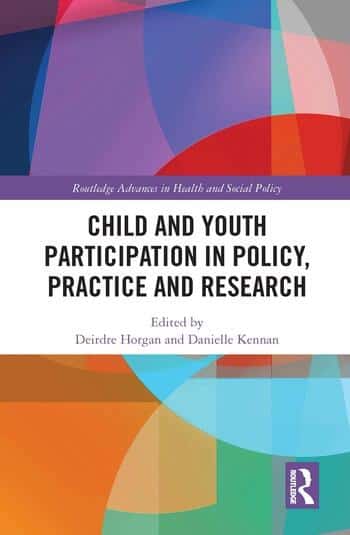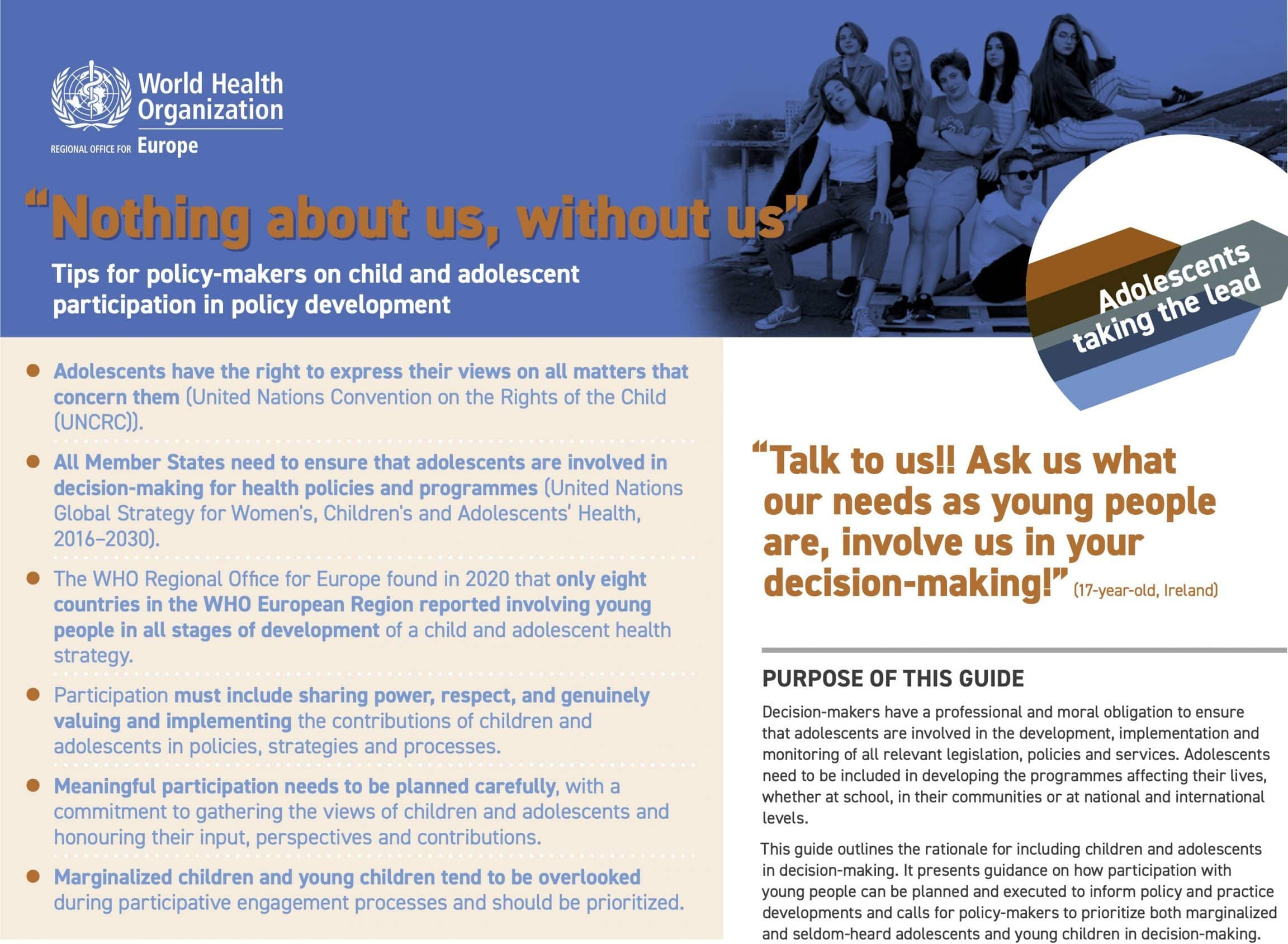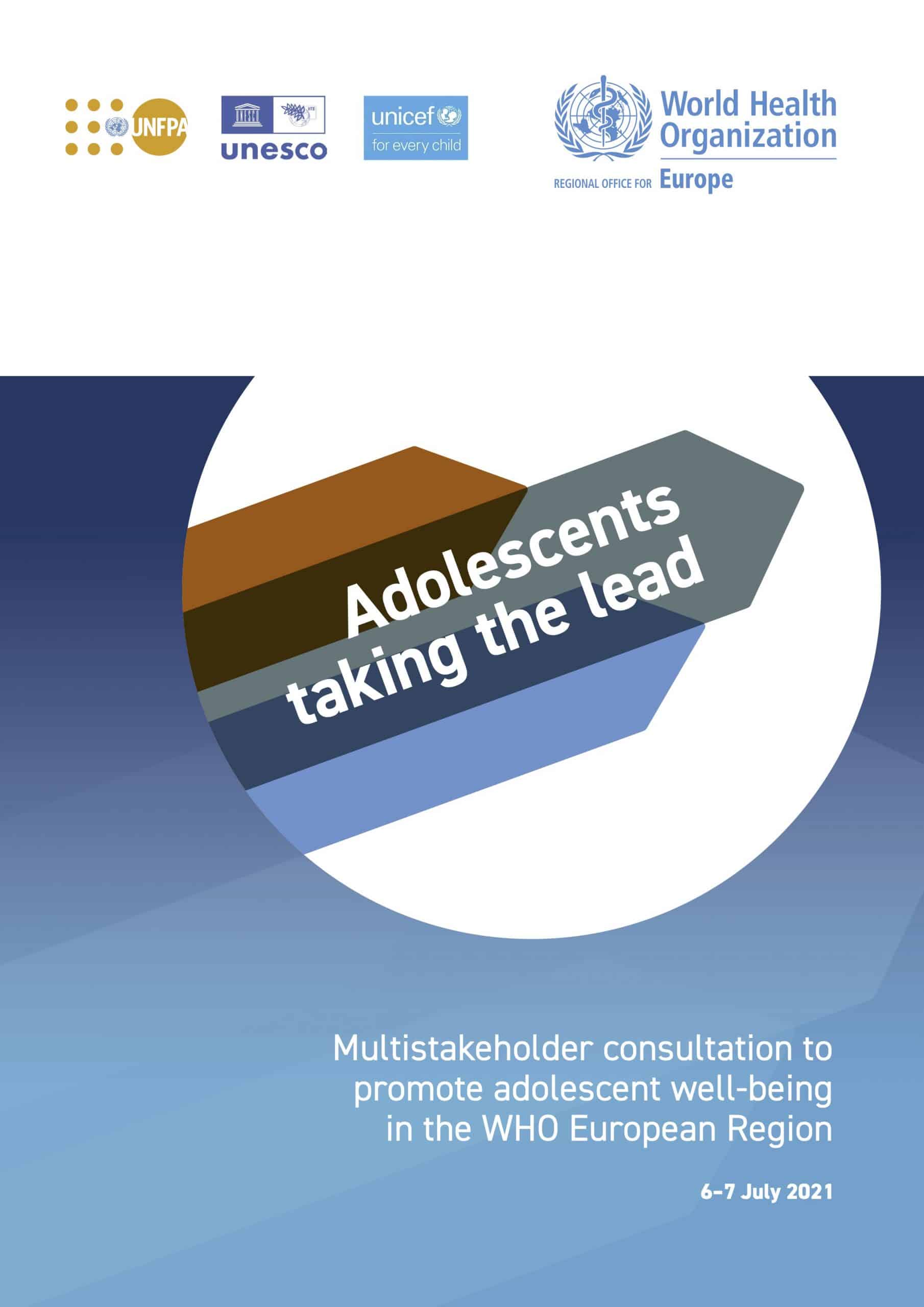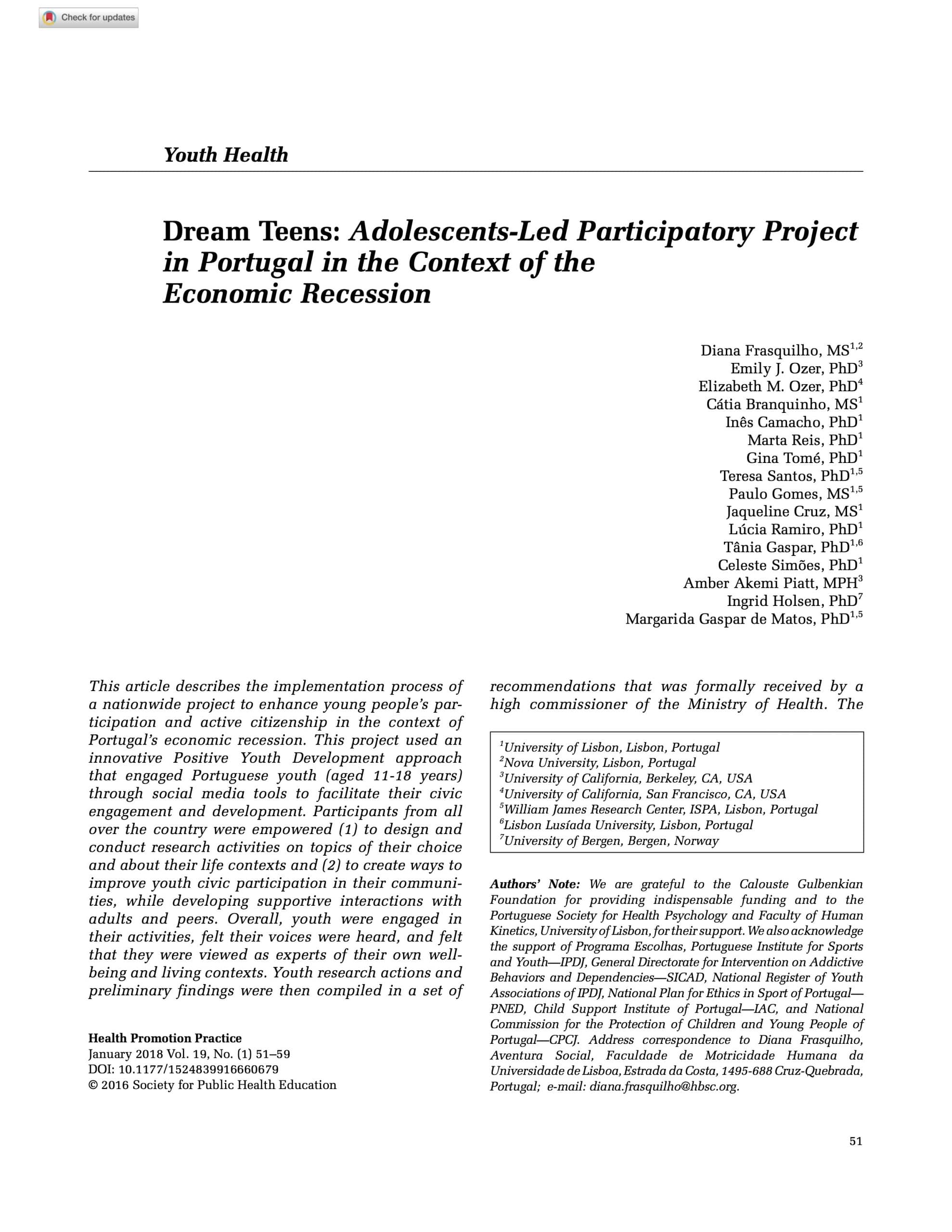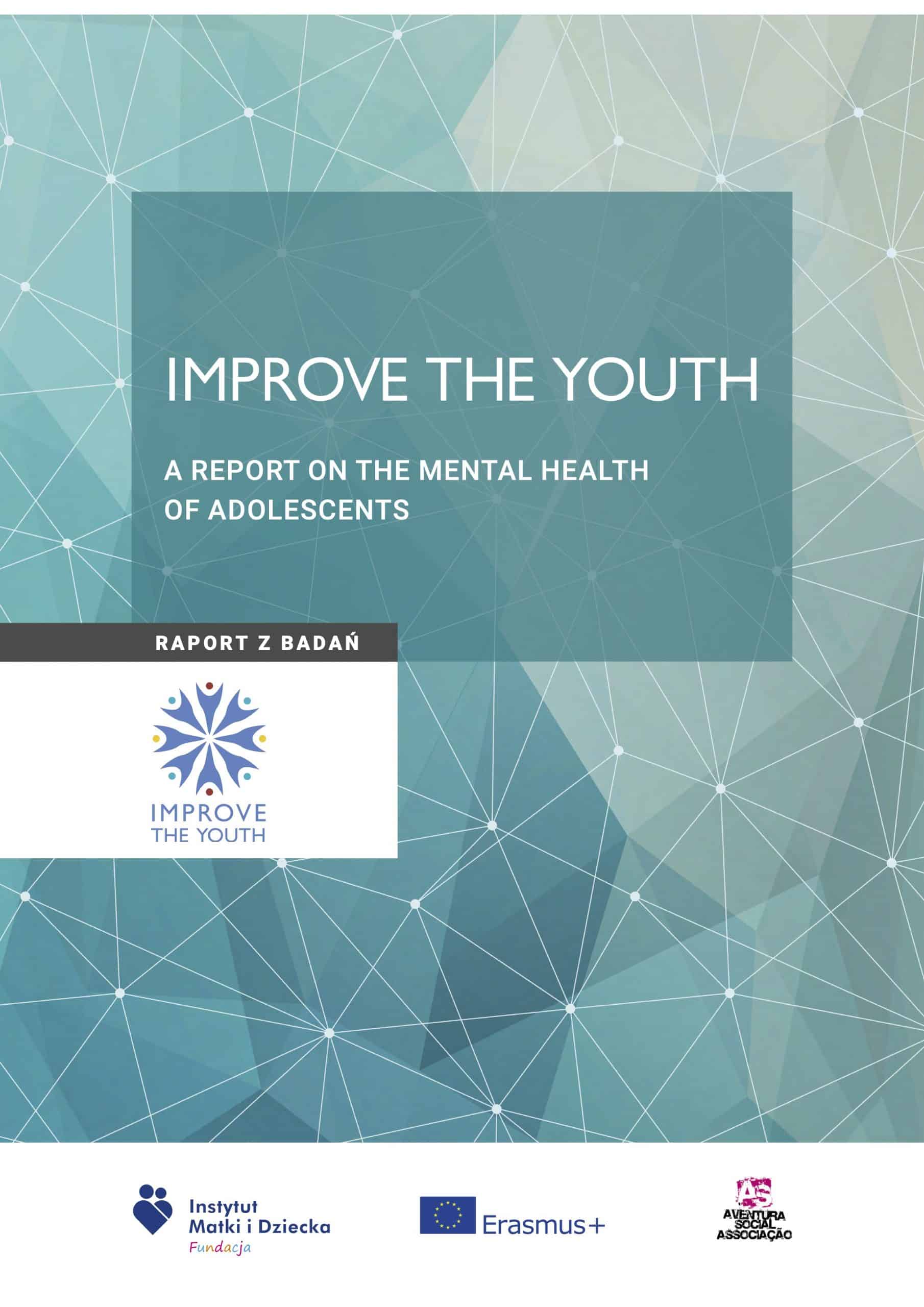YOUTH ENGAGEMENT
Youth engagement is integral to the work of the HBSC network. Article 12 of the United Nations Convention on the Rights of the Child, which enshrines the rights of children to have their views and opinions heard, respected and taken into account, is fundamental to the work of HBSC. Young people have a right to participate in issues that concern their lives and in making decisions that are relevant to them. HBSC takes the view that young people are critical stakeholders in the production of science and policy relevant to their lives.
The HBSC network uses a range of methodologies to enable young people to play an active role in the research process. Participatory research approaches with young people are employed in data generation, devising new research areas and related questions, data analysis and interpretation, and dissemination of findings. These approaches consider the role of power in the relationship between researchers and young people to ensure that engaging in research is empowering and health-promoting for young people. The aim is to capture data that are meaningful to young people and which reflect their current lifestyles and experiences, while also being of significant value to programme and policy design.
The meaningful involvement of young people in the HBSC study has expanded in scope over many years and provides an example of an increasing number of studies that embed engagement with young people within their core methodology.
Given that children have a unique insider perspective of childhood and adolescence, their active engagement in and influence over research and decisions that are relevant to them is essential. The HBSC network seeks to make youth participation standard in adolescent research and to provide example and leadership in this area.
Youth engagement reports and resources
This book showcases rights-based participatory approaches to policy-making, practice and research with children. It includes a chapter written by the HBSC team in Ireland that describes the process and impact of involving young people in question development in the national survey.
This guide outlines the rationale for including children and adolescents in decision-making. It presents guidance on how participation with young people can be planned and executed to inform policy and practice developments and calls for policy-makers to prioritize both marginalized and seldom-heard adolescents and young children in decision-making.
Participants reviewed key issues as they relate to adolescent well-being in the WHO European Region to identify policy implications for countries and highlight technical and other resources needed to support countries in accelerating progress towards more equitable health and well-being in adolescence.
This article describes the implementation process of a nationwide project to enhance young people’s participation and active citizenship in the context of Portugal’s economic recession. This project used an innovative Positive Youth Development approach that engaged Portuguese youth (aged 11-18 years) through social media tools to facilitate their civic engagement and development.
Improve the Youth: A report on the mental health of adolescents
REPORT
This report comes from the Improve the Youth project, which investigates the mental health of young people in Poland and Portugal
Continuing the youth involvement with HBSC International that began at the 30th Anniversary in 2013 a youth engagement social event was held at the International Spring meeting in Warsaw 21-23 June 2018.
Introducing young participants to research, this national network also wants to make these teens’ lives visible by giving them a voice and increasing their social and civic participation in issues such as health. Portuguese with English subtitles.
Video report from youth delegates taking part in the HBSC study’s 30th-anniversary meeting in St Andrews, Scotland.
Youth delegates from the HBSC study’s 30th-anniversary meeting take time to answer researcher’s questions about health, well-being and life as an adolescent.
Conversations with school-aged young people about what they think the key ingredients are for being healthy and living a long, good life.
Youth engagement scientific outputs
“Hey, we also have something to say”: a qualitative study of Portuguese adolescents’ and young people’s experiences under COVID-19
Journal of Community Psychology (2020)
Community-based Youth Participatory Action Research (YPAR) studies with focus on youth health and well-being: a systematic review
Journal of Community Psychology (2020)
Youth Participation in the Health Behaviour in School-aged Children Study
Journal of Adolescent Health (2020)
The “Dream Teens” Project: after a Two-Year Participatory Action-Research Program
Child Indicators Research (2019)
From Positive Youth Development to Youth’s Engagement: the Dream Teens
The International Journal of Emotional Education (2016)
Expanding the role of young people in research: Towards a better understanding of their lives
Zdrowie Publiczne (2014)
Investigating active travel to primary school in Ireland
Health Education (2014)
